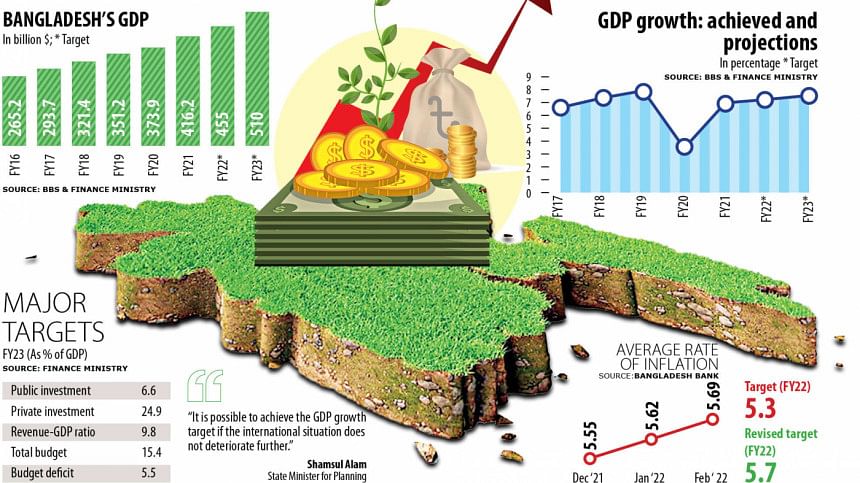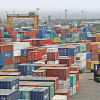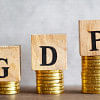7.5% GDP growth target set for fiscal 2023

The government has set an ambitious economic growth target of 7.5 per cent for the next fiscal year although the country faces new headwinds owing to higher prices of commodities globally and is still recovering from the shocks of the coronavirus pandemic.
It also maintained its previous projection of gross domestic product growth of 7.2 per cent for the current fiscal year, ending in June.
The growth projection was shared yesterday at a meeting of the Fiscal Coordination Council chaired by Finance Minister AHM Mustafa Kamal. Top officials of the finance ministry, the Bangladesh Bank and other ministries were present.
"Such target is achievable," said State Minister for Planning Prof Shamsul Alam.
"We set the target after analysing everything, including the country's economic ability and taking into account the mega projects that would be implemented by this time. We will continue our efforts to achieve the goal."
The growth target is higher than the forecasts by the World Bank and the Asian Development Bank.
The WB has projected that Bangladesh's GDP would grow by 6.7 per cent in FY23, while the ADB expected the economy to expand by 7.1 per cent.
Prof Alam said attaining the goal would be possible if the international situation does not deteriorate.
He termed the Russia-Ukraine war a big problem and blamed the conflict for rising inflation.
"But we still think that the way our economic activities are going on, achieving the growth target is possible."
At the meeting of the coordination council, the inflation rate for FY23 was projected at 5.5 per cent.
When the budget for the current fiscal year was unveiled in June last year, the inflation goal was set at 5.3 per cent. It was later revised upwards to 5.7 per cent as prices went up for a combination of multiple factors.
Inflation jumped to 6.17 per cent in February, the highest in 16 months, driven by soaring costs of foods.
Prof Alam said the government would try to curb inflation gradually. "But it is also true that this will depend on the global situation."
The inflation outlook has worsened due to the war in Ukraine and associated sanctions that resulted in higher global commodity prices, said the WB in its latest report on Bangladesh.
"Though domestic crop production is expected to remain resilient, food prices may increase further if the government increases domestic energy and fertilizer prices."
Non-food prices are likely to remain elevated as well, driven by an increase in transportation costs and the knock-on effects on other products, said the WB.
According to the government's projection, the size of the economy would be $512 billion, or Tk 44,12,849 crore in FY23, while it was Tk 38,95,483 crore in FY22.


 For all latest news, follow The Daily Star's Google News channel.
For all latest news, follow The Daily Star's Google News channel. 








Comments